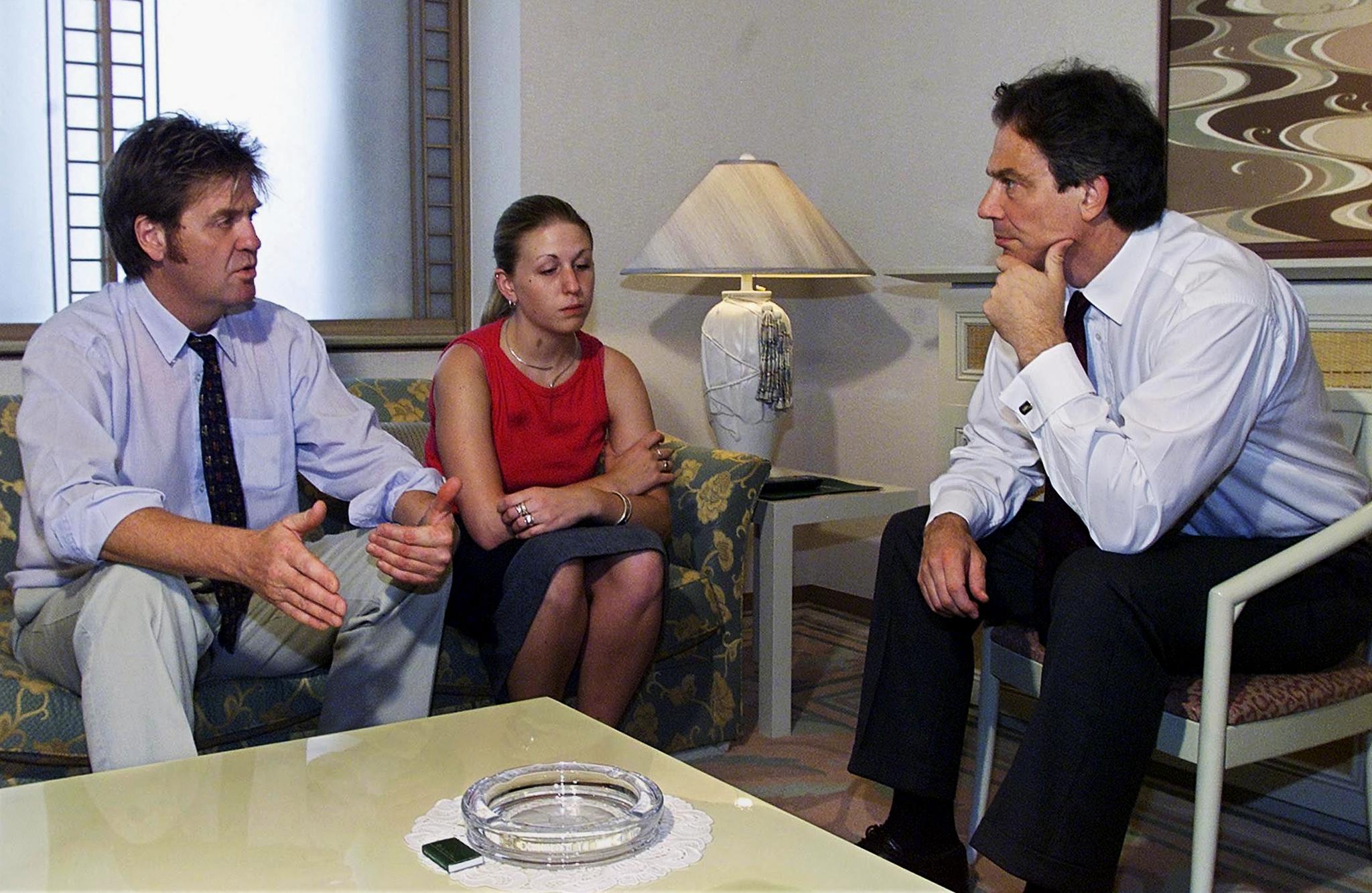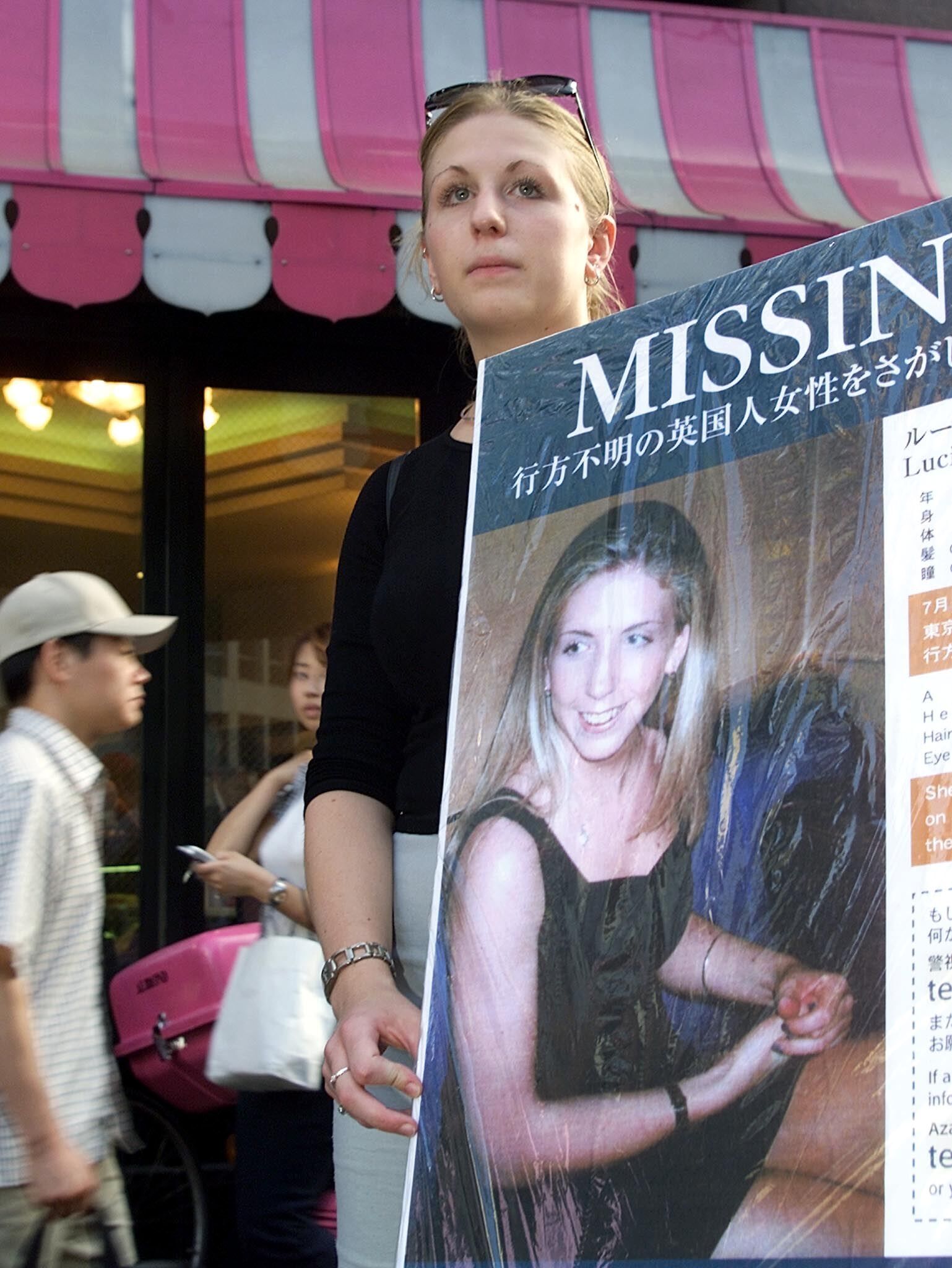‘Blind panic crashes in on you’: Father of Lucie Blackman, who went missing in Japan, speaks out in Netflix film
Documentary delves into case of 21-year-old who vanished in Tokyo two decades ago
Your support helps us to tell the story
From reproductive rights to climate change to Big Tech, The Independent is on the ground when the story is developing. Whether it's investigating the financials of Elon Musk's pro-Trump PAC or producing our latest documentary, 'The A Word', which shines a light on the American women fighting for reproductive rights, we know how important it is to parse out the facts from the messaging.
At such a critical moment in US history, we need reporters on the ground. Your donation allows us to keep sending journalists to speak to both sides of the story.
The Independent is trusted by Americans across the entire political spectrum. And unlike many other quality news outlets, we choose not to lock Americans out of our reporting and analysis with paywalls. We believe quality journalism should be available to everyone, paid for by those who can afford it.
Your support makes all the difference.“I was sitting in the garden at home, and I got a telephone call to say that my daughter, Lucie, had gone missing.” These are the words of Tim Blackman, the father of Lucie Blackman, the 21-year-old British woman who vanished while living in Tokyo in 2000.
“She was out working in Japan,” Tim says, in Netflix’s new documentary Missing: The Lucie Blackman Case. “I was immediately thinking, ‘Well, there must be some rational explanation.’”
But he soon realised something was very wrong. “That feeling of complete blind panic just crashes in on you,” he tells the camera.
Lucie, a former flight attendant, went missing just three weeks after moving to Tokyo for a year of exploration. She was last seen leaving the bar where she worked as a hostess and, as the Netflix documentary shows, an intricate international investigation followed to find Lucie, led by a team of Japanese detectives.
The true crime feature is told both through the inside track of the investigation and through Tim’s story of trying to track his daughter down.
The day after Lucie went missing, her friend Louise Philips received a call from a man who told her that Lucie had joined a cult and would never see Philips again.
Philips then raised the alarm, and within weeks, Tim held a press conference in Tokyo appealing for information about his daughter’s whereabouts. The then-prime minister, Tony Blair, met the Blackmans in Japan and promised to raise the issue with his Japanese counterpart at a G8 summit.
During the seven-month search for Lucie, Japanese police received a letter purporting to be from Lucie, stating: “I am doing what I want so please leave me alone.” It was quickly dismissed as fake.
Then in early 2001, body parts later identified as being Lucie’s were found by police buried in a cave near a beach close to Korean-Japanese businessman Joji Obara’s seaside home.

Watch Apple TV+ free for 7 days
New subscribers only. £8.99/mo. after free trial. Plan auto-renews until cancelled

Watch Apple TV+ free for 7 days
New subscribers only. £8.99/mo. after free trial. Plan auto-renews until cancelled
In April 2001, Obara was arrested over Lucie’s death. In October 2002, he went on trial charged with the abduction of Lucie, rape resulting in death and the disposal of her body. He was also charged with killing an Australian woman, Carita Ridgway, in 1992 and raping eight other women.

A years-long fight for justice followed, during which time Tim drew criticism for accepting a 100 million yen “condolence payment” from a friend of Obara’s (the equivalent of £442,000 at the time). This is not uncommon in Japan: the accused are expected to reflect on their crimes and admit their errors, sometimes atoning through a payment to the victim or the victim’s family.
Tim’s ex-wife and Lucie’s mother, Jane Steare, called the cash “blood money”, telling press that Tim’s actions were an “utter betrayal”. Tim argued he wanted to use the money to “secure the long-term future of the Lucie Blackman Trust”, which works to help young people be more aware of their safety, particularly when abroad.
In 2005, Lucie’s younger sister Sophie attempted suicide soon after Lucie’s ashes were buried because she could no longer cope with her grief.

In 2007, Obara was cleared of all charges connected with Lucie’s death but was sentenced to life imprisonment after being convicted of eight counts of rape and the rape and death of Ridgway. Tim said his daughter was “robbed of justice”.
After an appeal from prosecutors, Obara was convicted in 2008 of abducting Lucie. The high court in Tokyo said that although there was not enough evidence to convict Obara of murder, he had mutilated Lucie’s body.
Missing: The Lucie Blackman Case is out now.



